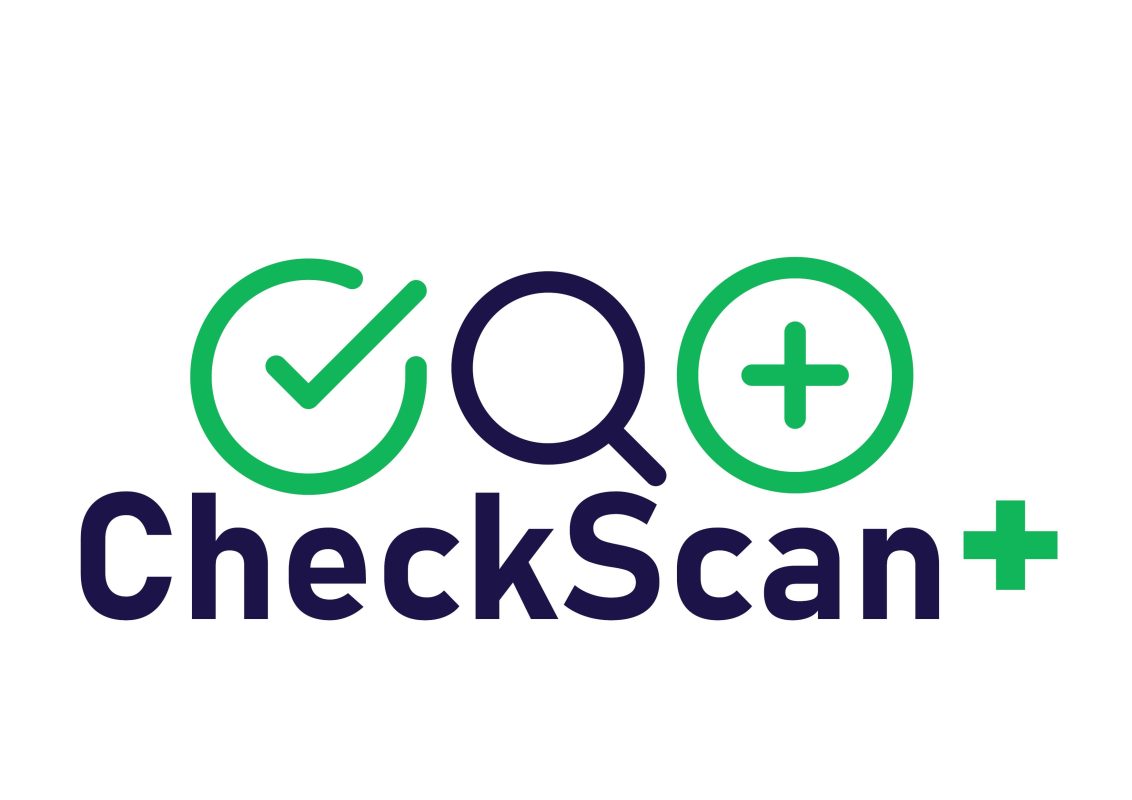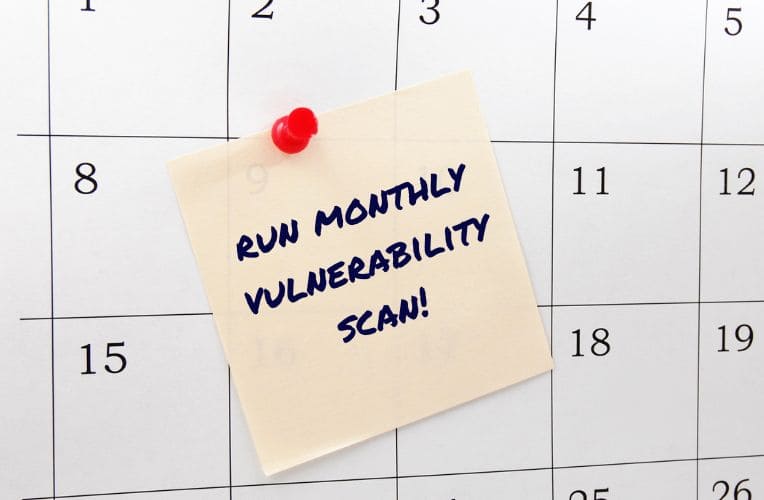In today’s digital landscape, where businesses heavily rely on technology and online platforms, it has become imperative to prioritize cybersecurity measures. One crucial aspect of ensuring the security of your business is conducting regular vulnerability scanning. This proactive approach allows you to identify and address potential weaknesses in your systems before they can be exploited by cybercriminals. In this blog post, we will explore the significance of vulnerability scanning services for businesses and how they can prevent cyber threats.
What we will cover:
- What Is a Vulnerability Scan, and Why Is It Important?
- Why Test for Vulnerabilities?
- How Often Is Enough?
- Keeping Tabs on Malicious Actors
- Types of Vulnerability Testing
- Penetration Testing
- Authenticated Scans
- Unauthenticated Scans
- Responding to Vulnerabilities
- Tempering Your Expectations
- Sign-up for a free demo
What Is a Vulnerability Scan, and Why Is It Important?
A vulnerability scan is a systematic process of identifying security weaknesses in computer systems, networks, or applications. It involves the use of specialized tools that automatically scan and analyze your digital infrastructure to uncover potential vulnerabilities. These vulnerabilities can range from outdated software versions and misconfigurations to weak passwords and unpatched security flaws.
Regular vulnerability scanning is important for several reasons. First and foremost, it helps you stay one step ahead of cybercriminals by proactively addressing potential weaknesses before they can be exploited. By conducting vulnerability scans, you can identify and fix security vulnerabilities, reducing the risk of unauthorized access, data breaches, and other cyber attacks.
Additionally, vulnerability scanning is crucial for maintaining compliance with industry regulations and standards. Many sectors, such as finance and healthcare, have specific requirements for security measures, and regular vulnerability scans can help ensure your business meets these standards.
“More than one in four companies are still vulnerable to WannaCry”
– Positive Technologies also found that 26 percent of companies remain vulnerable to the WannaCry ransomware as they have not yet patched the vulnerability it exploits. That’s particularly concerning given that WannaCry attacks spiked in Q1 of 2021.
Why Test for Vulnerabilities?
Testing for vulnerabilities is vital because it allows you to understand the security posture of your systems and applications. It helps you identify weaknesses that could potentially be exploited by hackers to gain unauthorized access or compromise your data. By uncovering vulnerabilities through testing, you can take appropriate measures to mitigate the risks and strengthen your overall security.
Without regular vulnerability scanning, your business may remain unaware of security flaws that could be easily exploited by malicious actors. This can lead to severe consequences, including financial losses, reputational damage, and legal liabilities. Therefore, it is crucial to prioritize vulnerability testing as an essential part of your cybersecurity strategy.
Unpatched vulnerabilities were involved in 60% of data breaches
According to a 2019 Ponemon Institute Vulnerability Survey, “60% of breach victims said they were breached due to an unpatched known vulnerability where the patch was not applied.” However, an even higher portion (62 per cent) claimed they weren’t aware of their organizations’ vulnerabilities before a breach.
How Often Is Enough?
The frequency of vulnerability scanning depends on various factors, such as the size and complexity of your infrastructure, the sensitivity of your data, and the nature of your business. As a general rule of thumb, it is recommended to conduct vulnerability scans at regular intervals, typically quarterly or monthly.
However, keep in mind that technology is continuously evolving, and new vulnerabilities are discovered regularly. Therefore, it is important to stay up to date with the latest security patches and threat intelligence. In some cases, you may need to conduct scans more frequently, especially during critical periods or when significant changes are made to your systems.
75% of attacks in 2020 used vulnerabilities that were at least two years old
According to the Check Point Cyber Security Report 2021, three out of four attacks took advantage of flaws that were reported in 2017 or earlier. And 18 per cent of attacks utilized vulnerabilities that were disclosed in 2013 or before, making them at least seven years old.
Keeping Tabs on Malicious Actors
Cybercriminals are constantly evolving their tactics to exploit vulnerabilities and gain unauthorized access to systems. Regular vulnerability scanning helps you stay informed about the latest attack vectors and emerging threats. By actively monitoring your systems and conducting vulnerability scans, you can proactively defend against potential attacks and keep your business secure.
Furthermore, vulnerability scanning can provide valuable insights into the common methods used by attackers to exploit vulnerabilities. This information can be used to strengthen your security posture by implementing additional security controls and educating employees about potential threats.
Types of Vulnerability Testing
There are different types of vulnerability testing that can be performed to assess the security of your systems. The choice of testing methodology depends on your specific requirements, the level of access you have to the systems being tested, and the desired depth of analysis. Here are three common types of vulnerability testing:
Penetration Testing
Penetration testing, also known as ethical hacking, simulates real-world attacks to identify vulnerabilities and assess the effectiveness of your security controls. This type of testing involves a comprehensive analysis of your systems, applications, and network infrastructure to uncover potential weaknesses that could be exploited by attackers. Penetration testing is typically performed by specialized security professionals and provides a detailed assessment of your security posture.
Authenticated Scans
Authenticated scans involve conducting vulnerability scans using authorized credentials or user accounts. This type of testing allows for a more comprehensive assessment of your systems by simulating the actions of an authenticated user. Authenticated scans can identify vulnerabilities that may not be visible during unauthenticated scans, such as misconfigurations in user permissions or weak password policies.
Unauthenticated Scans
Unauthenticated scans are performed without using any credentials or user accounts. They focus on identifying vulnerabilities that can be detected externally without any insider access. Unauthenticated scans are useful for identifying vulnerabilities that could be exploited by attackers without any form of authentication.
Responding to Vulnerabilities
When vulnerabilities are discovered during a vulnerability scan, it is crucial to respond promptly and effectively. The response process typically involves the following steps:
- Documentation: Record and document the discovered vulnerabilities, including their severity and potential impact on your systems.
- Risk Prioritization: Assess the risks associated with each vulnerability and prioritize them based on their severity and the potential impact on your business.
- Remediation: Develop a plan to address and mitigate the identified vulnerabilities. This may involve patching software, reconfiguring systems, or implementing additional security controls.
- Validation: Verify that the remediation measures have been effective in addressing the vulnerabilities. Conduct follow-up scans to ensure that the identified weaknesses have been properly resolved.
Take Action Now and Secure Your Business!
Is your business vulnerable to cyber threats? Don’t wait for a data breach or a costly security incident to take action. Protect your valuable assets and sensitive information with our comprehensive vulnerability scanning service, CheckScan+.
CheckScan+ is managed by a team of experienced and qualified cybersecurity professionals and pen testers. We have the expertise and knowledge to identify and mitigate potential security weaknesses in your systems, applications, and network infrastructure.
Tempering Your Expectations
While vulnerability scanning is an essential part of your cybersecurity strategy, it is important to understand its limitations. Vulnerability scanning is not a foolproof method of ensuring absolute security. It is just one piece of the puzzle and should be complemented by other security measures, such as regular patching, employee training, and network segmentation.
Additionally, vulnerability scanning may occasionally produce false positives or false negatives. False positives are identified as vulnerabilities but are not actual security risks, while false negatives are undetected vulnerabilities. It is essential to have skilled security professionals review and validate the scan results to avoid unnecessary remediation efforts or overlooking critical vulnerabilities.
In conclusion, regular vulnerability scanning plays a vital role in safeguarding your business against cyber threats. By proactively identifying and addressing vulnerabilities, you can significantly reduce the risk of data breaches, unauthorized access, and other security incidents. Remember to choose the appropriate testing methodologies, respond promptly to identified vulnerabilities, and supplement vulnerability scanning with other security measures to ensure comprehensive protection for your business. Stay vigilant, stay secure!
Sign up for a Free 30-Minute, No Obligation Demonstration!
Discover the power of our vulnerability scanning service firsthand. We invite you to take advantage of our free 30-minute CheckScan+ demonstration, where our experts will showcase the benefits and capabilities of our service.
During the demonstration, you will:
- Learn how our vulnerability scanning service can proactively identify weaknesses in your digital infrastructure.
- Understand the potential risks and threats your business may be exposed to without regular vulnerability scanning.
- Witness the depth and accuracy of our scans, conducted by our skilled pen testers.
- Get a glimpse into the actionable insights and comprehensive reports we provide to help you strengthen your security posture.
There’s no obligation to commit. Our goal is to empower you with the knowledge and understanding of the importance of vulnerability scanning for your business. Sign up for a demo now.


